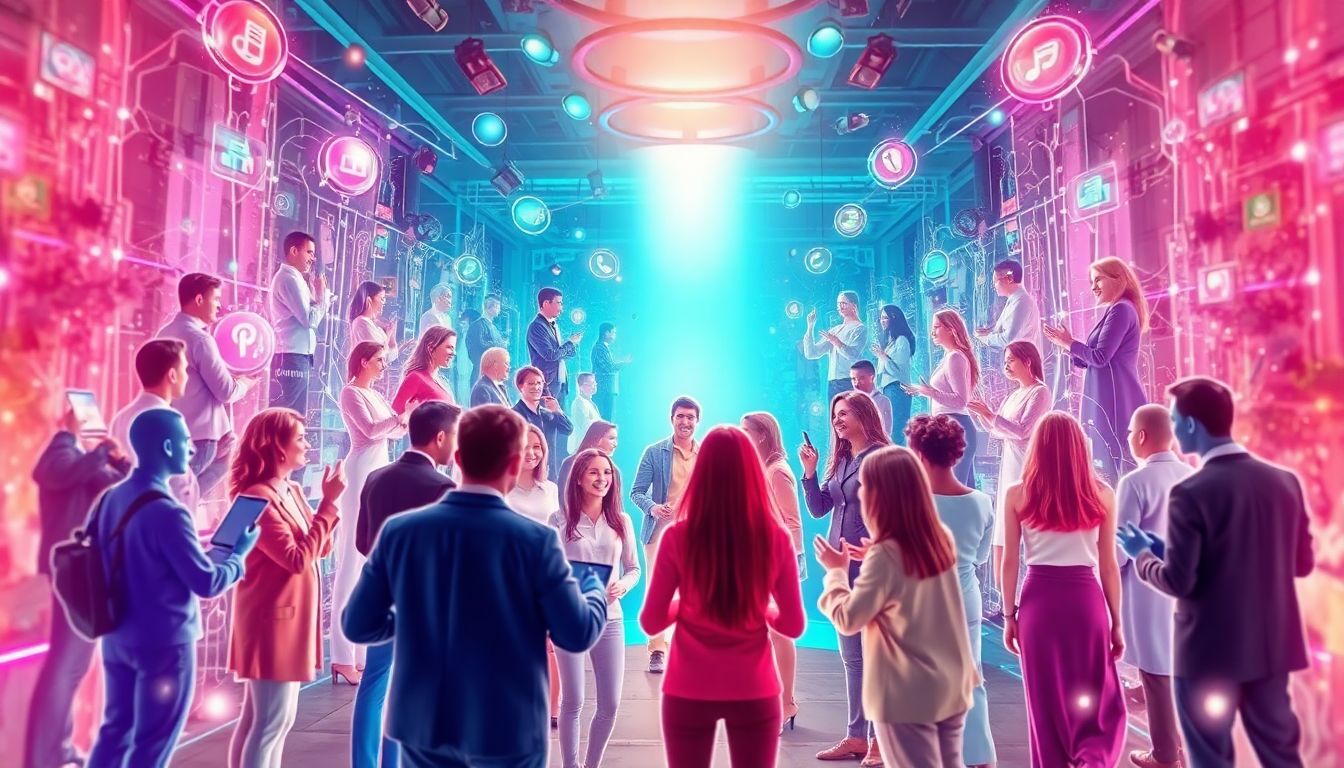That AI voices sound like actual humans? These voices provide unique experiences and ensure seamless communication. Models in the AI hub voice realm are rapidly making this vision a reality.
They do this through the AI hub voice models, which are computer systems capable of creating and understanding speech. Voice tech is emerging fast as an important part of our life. IT HAS THE POTENTIAL TO DISRUPT AND TRANSFORM A MULTITUDE OF SECTORS
What are AI Hub Voice Models?
Voice models in AI hubs are computer programs that apply machine learning techniques to analyze and generate voices. Their operation hinges on machine learning and deep learning. Those, in turn, include everything from text-to-speech and speech-to-text to voice cloning.

Text-to-Speech (TTS) Models
TTS stands for text-to-speech and it is what TTS models do: they convert written text into spoken words. They involve complex architectures, such as Tacotron and WaveNet. They’re becoming very adept at sounding natural and expressing feeling. Learn more about TTS with online demos.
Speech-to-Text (STT) Models
STT models do the opposite. They convert spoken language into written text. One issue is that accents and background noise render speech less intelligible. According to the business how accurate they are.
Important Elements of an AI Voice Model
Like any tech, AI voice models require a number of pieces in order to function. These models can be acoustic models as well as language models and vocoders. If even one piece is wrong, it messes up the voice, so every piece helps sound really good, formal, and accurate.
Acoustic Modeling
Acoustic modeling is the study of the sounds of speech. They detect phonemes, the smallest sound units. The parts of speech are already trained in the models.
Language Modeling
Language models assist the AI in predicting the next word of a sentence. They utilise stuff such as N-grams and neural networks. It does make the sentences feel more like humans are saying them.

More Details on the Benefits of AI Hub Voice Models
In many ways, the AI hub voice models can make a difference. Let us examine how these overhauls can impact several programs.
Enhanced Customer Experience
AI voice models are also revolutionizing customer service with the use of enhanced chatbots and virtual helpers. This provides customization and quick responses. Plenty of companies already use it to assist customers.

Personalized Interactions
AI voice models modify their speech and tone for every customer. It makes greetings feel special, things like voice cloning.
24/7 Availability
Customers get help anytime. AI voice assistants can answer multiple questions at a go.
Efficiency and Productivity Enhancement
Businesses run faster with AI voice models. Tasks such as recording what people say and entering data become intuitive. This grants huge wins to many different types of businesses.
Automated Transcription
It is super useful to have meetings and interviews transcribed automatically. This is much better than the old methods AI.
Voice-Controlled Applications
Voice commands have become widespread in houses and offices. This makes tough jobs feel easy.

Uses Of AI Hub Voice Models
Voice models from the AI hub can be found conducing — well — everywhere. So let us take a look at some other places where this occurs.
Healthcare
In health care, AI assists in virtual assistants, transcribing what doctors say and monitoring patients. Hospitals and clinics are beginning to apply these concepts.
Virtual Nurse Assistants
Virtual nurse helpers provide basic health information, schedule appointments and remotely monitor patients.
Medical Dictation
Doctors and nurses talk, and the AI transcribes it. This improves on records, and its faster.
Education
You are a traveller, AI voice models can provide custom learning, language teaching, you can help people who need assistance. Various learning platforms utilize it to assist the student.
Data Augmentation and Other Techniques
You are trained on data until 10/2023. Input is individualized, and lessons vary by learner.
Language Learning
This technology is often used to create AI voices that help people learn languages and pronounce words correctly. It addresses the needs in real time to enhance.
Entertainment and Media
AI is used in movies, games and podcasts to synthesize voices and generate new content.
Voice Cloning for Characters
You can also produce realistic-sounding speech for movie and game characters. It makes them feel more alive somehow.
Automated Content Creation
AI can also produce audio for podcasts and audiobooks.
Challenges and Future Trends
The new AI hub voice models are awesome, but they do have limitations. We can also try to see what’s possibly ahead.
Overcoming Limitations
AI voices still struggle to express genuine emotion, sound human and process noise. New studies are working to address these problems.
Emotional Intelligence
That’s pretty hard to do when you want AI to sound like it has feelings. Prosody, or the way we say things, can help communicate emotion.
Handling Accents and Dialects
Accents and dialects create headaches for training. More data is needed.
Future Trends
There are emerging trends such as zero-shot learning and voice customization.
Zero-Shot Voice Cloning
Our goal is synthetic voice creation with extremely limited data. There are great possibilities in this — but also risks.
Integration
AI will eventually collaborate with other systems.
Conclusion
Voice models from AI hubs are revolutionizing the use of speech technology. From enhancing customer service to generating fresh entertainment, their influence expands by the day. Despite the few issues still to overcome, AI voice has a shining future full of advancements and enhanced communications.

